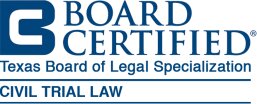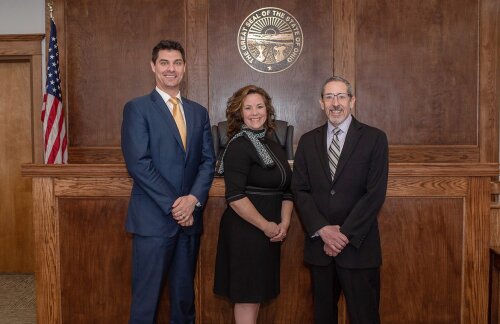Best ADR Mediation & Arbitration Lawyers in Missouri
Share your needs with us, get contacted by law firms.
Free. Takes 2 min.
Or refine your search by selecting a city:
List of the best lawyers in Missouri, United States
About ADR Mediation & Arbitration Law in Missouri, United States
Alternative Dispute Resolution (ADR) includes processes like mediation and arbitration that are designed to resolve legal conflicts without going to court. In Missouri, ADR is often encouraged or required by the courts before a case can proceed to trial. Mediation involves a neutral third party guiding the disputing parties toward a mutually acceptable agreement. Arbitration, on the other hand, is more formal and involves an arbitrator or a panel making a binding decision after considering evidence from both sides. These methods can be used to resolve civil, family, commercial, and even some employment disputes efficiently and privately.
Why You May Need a Lawyer
While ADR is intended to simplify dispute resolution and reduce legal costs, having a lawyer provides crucial benefits. Lawyers assist with explaining the ADR process, ensuring your legal rights are protected, and helping you prepare for negotiations or hearings. Common situations where legal help is valuable include:
- Settling business disputes or contract issues
- Divorce, child custody, or family law matters
- Employment disagreements
- Personal injury and insurance claims
- Ensuring the enforceability of settlement agreements or arbitration awards
- Interpreting complex arbitration clauses in contracts
- Representing your interests at ADR sessions
Local Laws Overview
Missouri recognizes and actively promotes ADR through both court rules and state statutes. Missouri Supreme Court Rule 17 authorizes courts to refer civil cases to ADR processes, including mediation and arbitration. Participation may be voluntary or, in some counties, court-ordered. The state adopts the Uniform Arbitration Act, which allows parties to enforce written arbitration agreements and governs the procedures and enforcement of arbitration awards. Confidentiality in ADR is protected by law, especially in mediation, though there are exceptions. Missouri courts enforce mediated agreements and arbitration awards where due process has been observed and public policy is not violated.
Frequently Asked Questions
What types of disputes can be resolved through ADR in Missouri?
Most civil disputes, including business, family, employment, and personal injury matters, can be settled through mediation or arbitration if both parties agree or if the court orders ADR.
Is ADR mandatory in Missouri courts?
Some Missouri courts require parties in certain civil cases to attempt mediation before allowing a trial. Others may strongly encourage it. Arbitration is usually voluntary unless agreed to in a contract.
Are ADR outcomes legally binding?
Mediated agreements are usually binding if both parties sign a written agreement. Arbitration decisions are binding and enforceable in court, unless the parties agree otherwise.
Can I have a lawyer represent me during ADR?
Yes, parties often have lawyers present to offer advice, ensure fair treatment, and help draft settlement agreements.
How long does the ADR process take?
ADR is often much faster than court litigation. Mediation can sometimes resolve a dispute in one session, while arbitration generally concludes within weeks or months, depending on complexity.
What happens if we do not reach an agreement during ADR?
If mediation fails, the parties may move forward to court. In binding arbitration, the arbitrator issues a decision regardless of whether the parties agree.
Are ADR sessions confidential?
Mediation in Missouri is confidential, and statements made cannot be used in court except in specific circumstances. Arbitration hearings are usually private, but the final award can be filed with a court for enforcement.
Can I appeal an arbitration award in Missouri?
Appealing an arbitration award is limited. Courts will only overturn awards for very specific reasons, like fraud, misconduct, or lack of jurisdiction.
How much does ADR cost?
ADR is typically less expensive than litigation. Costs vary depending on the mediator or arbitrator's fees, complexity, and length of the process. Some courts provide free or reduced-cost mediation services.
How do I start the ADR process?
You can request mediation or arbitration directly with the other party, through a contract clause, or by court order. A lawyer can assist in initiating the process and selecting a neutral third party.
Additional Resources
Several organizations and governmental bodies in Missouri can help you with ADR Mediation & Arbitration:
- Missouri Bar Association - provides information on ADR and attorney referrals.
- Missouri Division of Dispute Resolution Services (part of the Office of State Courts Administrator) - oversees court-annexed mediation and arbitration programs.
- Local Circuit Court ADR Programs - many counties have court-sponsored ADR services and rosters of approved mediators and arbitrators.
- American Arbitration Association (AAA) - offers private arbitration and mediation services in Missouri.
- Community Mediation Centers - available in some regions for neighbor, landlord-tenant, and family disputes.
Next Steps
If you are considering ADR or have been ordered to participate in mediation or arbitration in Missouri, start by assessing your legal needs. Consult with a lawyer to understand your rights and obligations. Your lawyer can help you prepare, select a competent mediator or arbitrator, and guide you through every stage of the process. Collect and organize any relevant documents and outline your goals for the dispute. If you need help finding an attorney or ADR professional, reach out to the Missouri Bar Association or inquire at your local courthouse. Acting promptly and being well prepared can help you achieve a faster and more favorable resolution to your dispute.
Lawzana helps you find the best lawyers and law firms in Missouri through a curated and pre-screened list of qualified legal professionals. Our platform offers rankings and detailed profiles of attorneys and law firms, allowing you to compare based on practice areas, including ADR Mediation & Arbitration , experience, and client feedback.
Each profile includes a description of the firm's areas of practice, client reviews, team members and partners, year of establishment, spoken languages, office locations, contact information, social media presence, and any published articles or resources. Most firms on our platform speak English and are experienced in both local and international legal matters.
Get a quote from top-rated law firms in Missouri, United States — quickly, securely, and without unnecessary hassle.
Disclaimer:
The information provided on this page is for general informational purposes only and does not constitute legal advice. While we strive to ensure the accuracy and relevance of the content, legal information may change over time, and interpretations of the law can vary. You should always consult with a qualified legal professional for advice specific to your situation.
We disclaim all liability for actions taken or not taken based on the content of this page. If you believe any information is incorrect or outdated, please contact us, and we will review and update it where appropriate.
Browse adr mediation & arbitration law firms by city in Missouri
Refine your search by selecting a city.

















